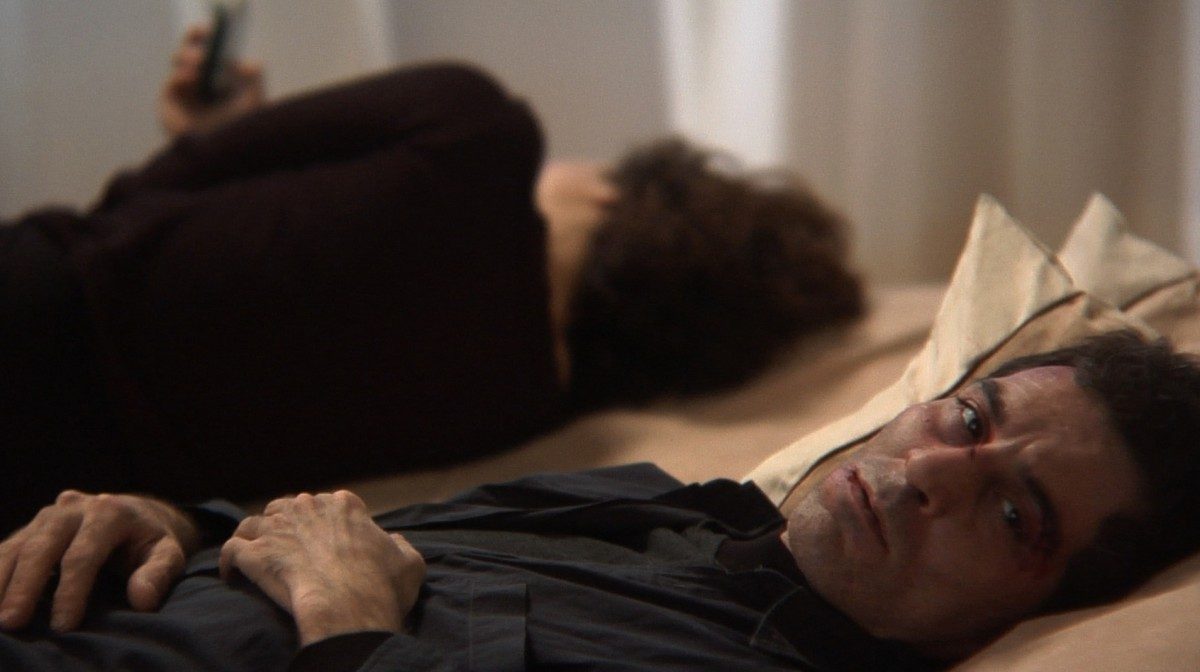Not so mysterious or tense in the plot, Thanos Anastopoulos’ second film Correction (2007) excites through other cinematic means. Highly developed visual language, almost independent from the minimally present dialogue, slowly unrolls the protagonist’s present, conditioned by his past. Yorgos, a Greek, stalks his ex-partner Ornela, an Albanian, and their daughter Savina, trying to reunite with them and re-establish his life after spending time in jail. At the same time, he is pursued by soccer hooligans, his ex-buddies. Homeless, haunted by own mistakes and rejected by own family, Yorgos is lost in the concrete hell ruled by xenophobia and violence. Once being a part of it, largely responsible for its demonic laws, he is having even more troubles to start his life anew. We can see his difficult beginnings – wandering through the claustrophobic streets of Athens, lurking through the darkness, sweating in a fast food restaurant, sleeping on the cardboard, avoiding practically faceless, but obviously bloodthirsty group of hooligans.
What we lack is the story of Yorgos’ past, especially regarding his relationship with Ornela. How come that a soccer hooligan, at some point represented as the senseless embodiment of xenophobia, a member of the group determined to violently confront Albanians – is with an Albanian girl? How come she wasn’t afraid of him? Was he forced by his gang to commit a crime? Was it just ‘an accident’? Although the lack of these information is somehow bothering, they don’t really matter that much. The film exceeds the limits of a personal story and tends to function as an allegory regarding immigrants and xenophobia, criminals searching for forgiveness, broken communities wanting to be re-established. It is the scheme present in various shapes in the Balkans. The post-crime repentance in this film may as well, in a wider context, be seen as, for instance, the post-war repentance in Serbia and Croatia. In both cases, many people are haunted by their own past mistakes, with some hope for the future, bothered by absurdities such as the force of the soccer hooligans (even today, soccer matches between Serbia and Croatia usually end in chaos). And finally, there is another factor stopping the family reunion – the silence.
A lot of things are unspoken in this film, or they are spoken through non-verbal and silent means, images and colors, details, setting, costumes. Not even music is that present in this film. The thing is that silence often causes misunderstandings. At the level of this film’s perception, this silence requires well-developed empathy and sensitivity in order to understand the reasons behind the protagonists’ acts. At the level of the story itself and the reality this allegory represents, this silence may even be the core reason for such severe difficulties of rebuilding normal life in a community poisoned by xenophobia.

